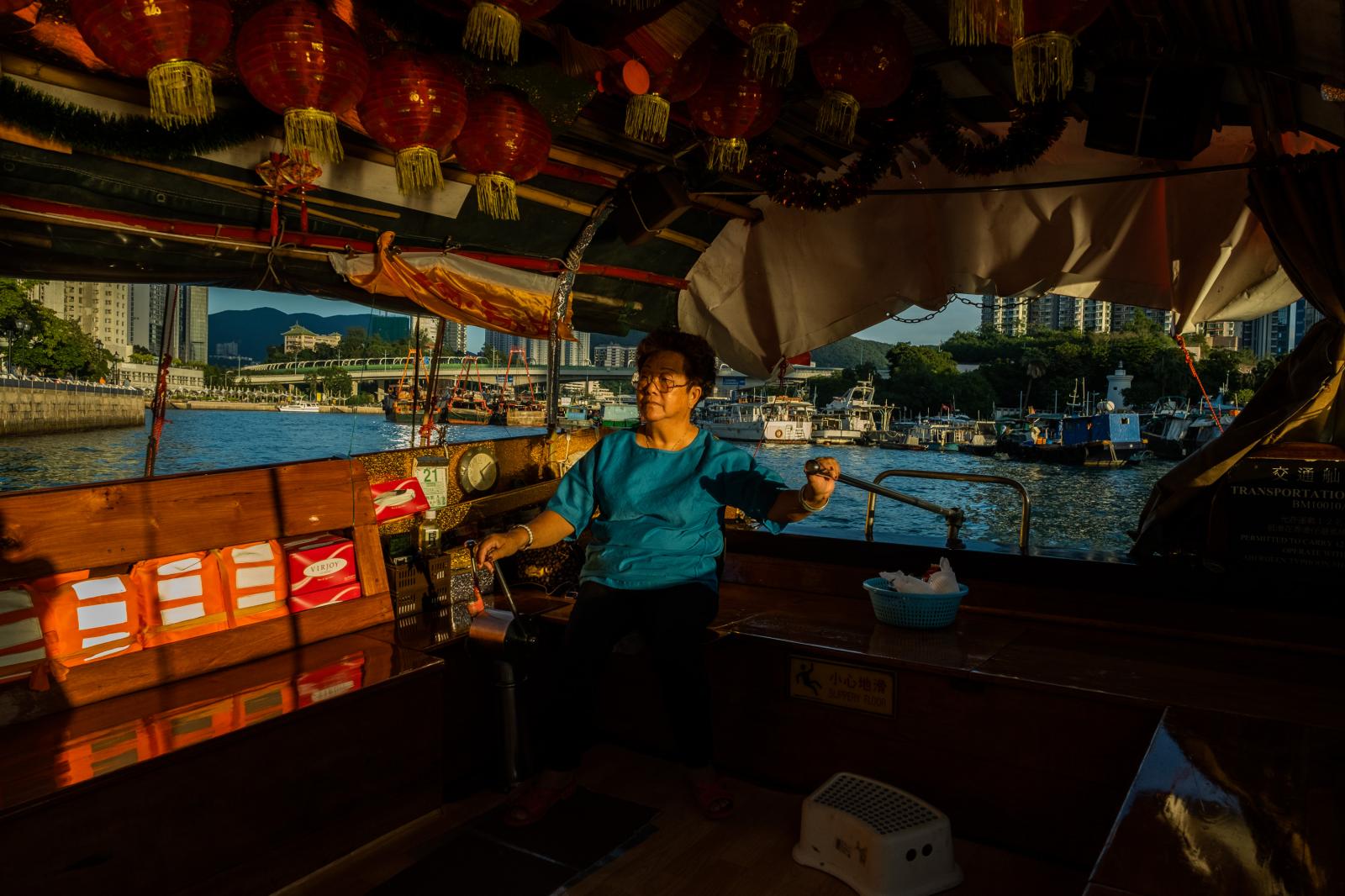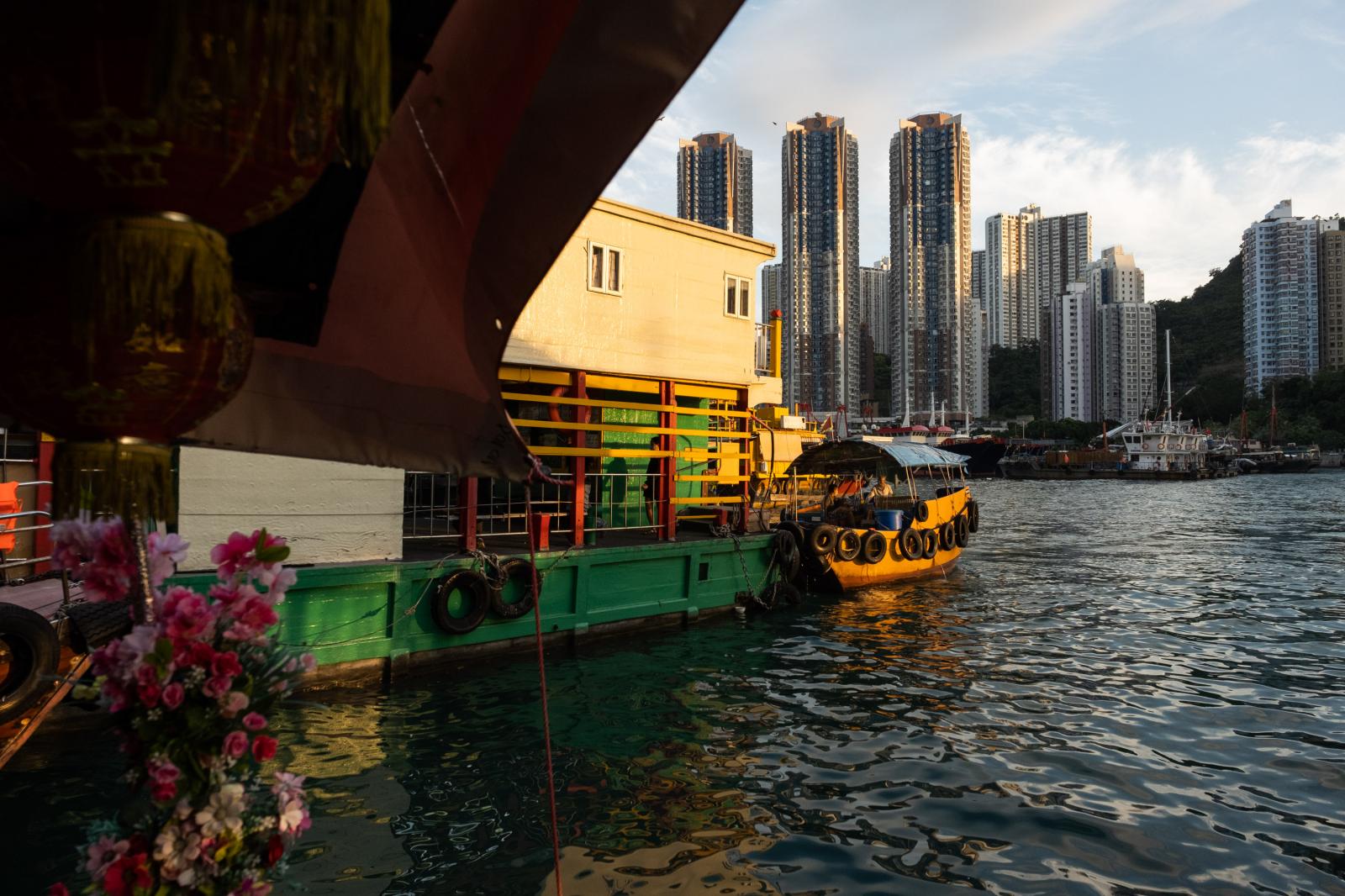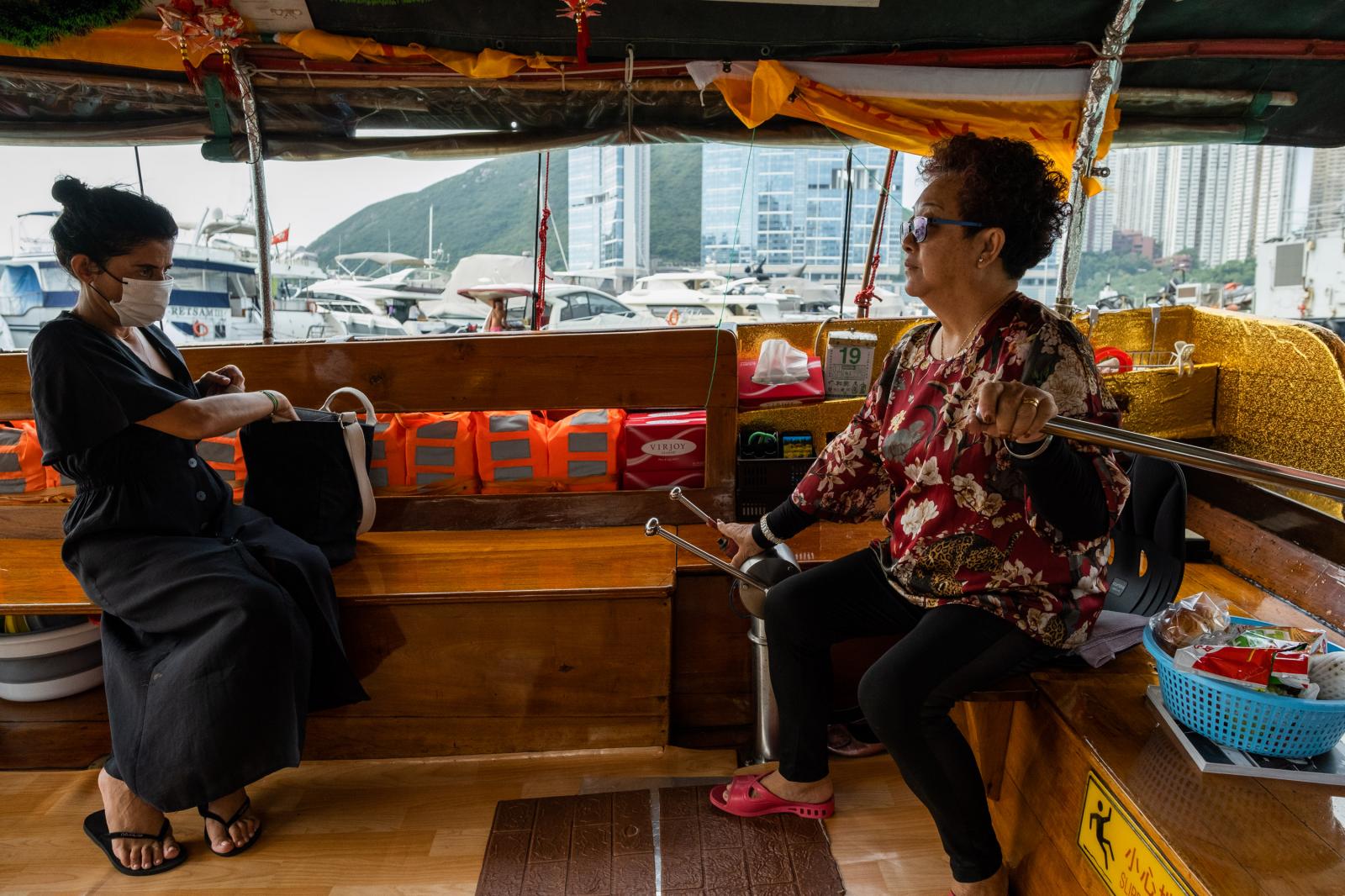Public Story
Lady Sampan
In the evening, they docked with the other boats to not float away. After dinner, they often talked for a while and then they spread the bamboo mats on the floor of the boat and fell asleep.
The so called “boat people” were the poorest of the city. Often they were too poor to marry. Many of the girls who lived on the boats called the men with whom they had intercourse with “husbands” and from time to time those men also helped them financially. Those girls were called “Dai goo leung”, translated this means big sister. The people of the mainland considered them as bad people, but it was a way to feed ageing parents or younger siblings. They didn’t have make-up and they didn’t owe expensive clothes. However, their clients loved to spend time with them and sometimes they became regular clients.
When Doris talks about that time, there is a tone of nostalgia in her voice, but this doesn’t mean that her life was better in the past than now. Now, the Hong Kong Government provides to her and her family a small apartment. Her living standard is without doubt improved compared to the past, but she misses that feeling of belonging to a community that helped and shared with each other the little possessions they had.
Until 1980, there was no bridge connecting the two shores of the islands of Hong Kong and Ap Lei Chau, in the southern part of the city. To be able to commute from one side to the other, or to reach a fishing boat moored in the canal, people had to ask for to samoan ladies for a ride.
Over the years many Sampan Ladies switched to work with tourists. The business was very easy. A tour operator brought a group of tourists, an organiser sold the tickets, and the Sampoan ladies took tourists on a tour in the water of the Aberdeen Typhoon Shelter. Doris adds: “Tourists are very curious to know everything about the boat people, our traditions our beliefs”.
Doris, like the others, collected the tickets, kept them and at the end of the month went to the tour organiser and received the money according to the number of tickets. They didn’t make much money, on average 15 or 20 HKD per ticket, but at the end of the month it was a safe income that Doris could live with.
With Covid everything has changed. Now there are no more tourists in Hong Kong and all tourism-related activities are in crisis. Doris went back to doing the work she originally did, transporting people from the Hong Kong side to the island of Ap Lei Chau and vice versa, or on boats moored in the waters of the shelter. However, this is not always easy.
“The waters in the canal were calm in the past and a sampan with the oar was possible to navigate. With the increase of the traffic and even larger ships the waters became more choppy and with the oar we can hardly move forward".
Sai Hou, 91 years old, is the mother of the Dori’s husband. She taught Doris to navigate by motor. She is one of the few Samoan Lady who never switched to work with tourists in the past. Nevertheless, the tourism crisis affects her work too. Before, she shared the number of customers with few other Sampan ladies but today she must share also with the Sampan left without tourists. Even though, the boat people now live in small flats on Aberdeen hill, during this hard time the old community spirit returns. Nobody complains about the lower income or accuses others of taking work away. They try to stay together until the situation returns to normal.
Doris tell me: “We help each other like in the past. We are poor people. We always have been. I never went to school because I had to work. We have never made a lot money doing this job but when I am on the boat, I feel free. For a short time, when I was young, I tried to work on the land. I was preparing and selling food. It wasn’t for me. I endured briefly and eventually went back on the boat”. She looked at the shiny benches of the boat. “With the help of my best friend, that for me is like a sister, I bought my Samopan and since then I take my boat every day from morning until the evening. I chat with friends, I learned about the world thanks to the tourists I met over the years. Thanks to them I can speak Mandarin and English and I could send my two sons to school and I am trying to offer them a better life. I always keep my Samoan clean and tidy”. She then adds: “When someone compliments my boat, I feel proud and happy because my Sampan is part of me.”






















